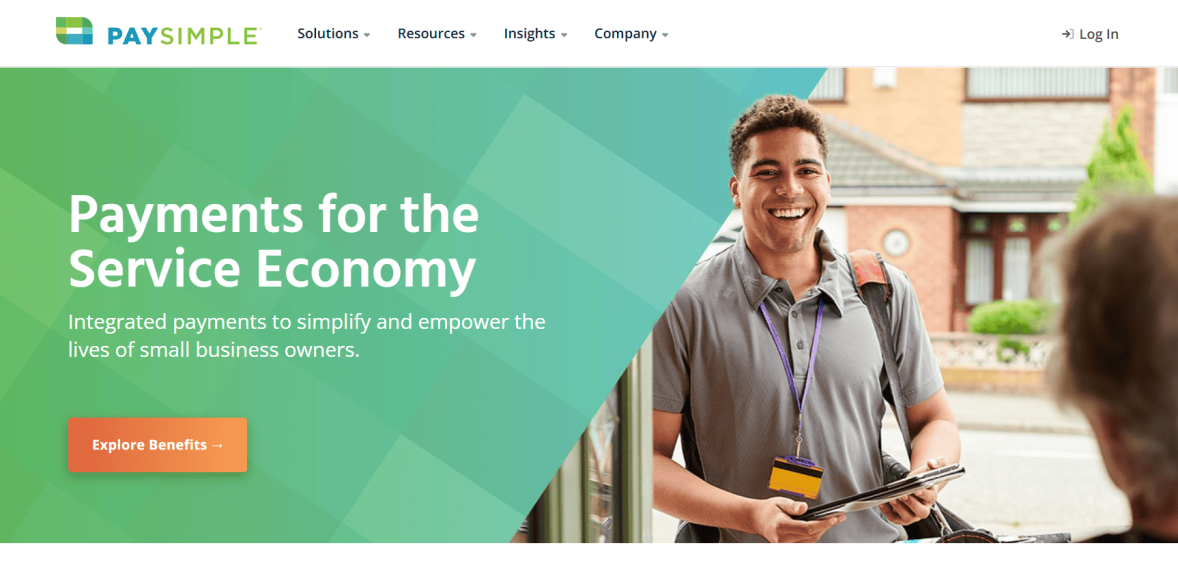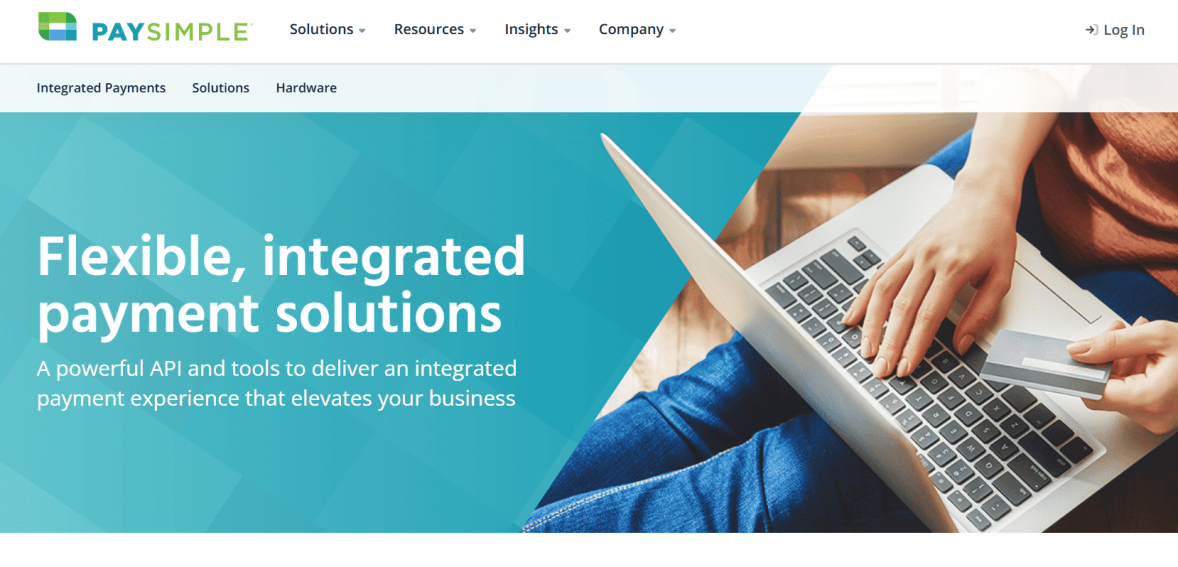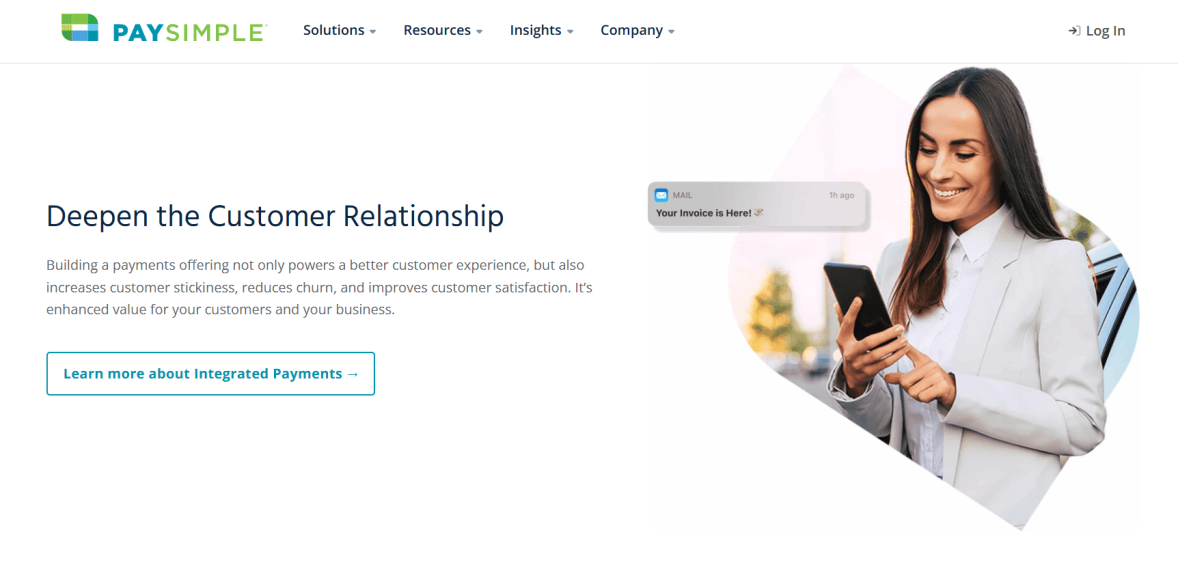PaySimple Review

PaySimple is a cloud based payment and customer management platform for small to mid-sized service based businesses. It has tools for billing, accepting payments, managing clients and scheduling appointments all in one dashboard. What makes PaySimple stand out is it’s all in one solution for businesses that have recurring customers, appointment driven services and simple invoicing needs. Lets read more about PaySimple Review.
It’s not for every business. High volume retail, inventory based eCommerce or companies that need complex storefront features may find the system lacking. But for service providers that want to digitize their business with minimal technical effort, PaySimple is a great solution. The platform is fully cloud based, accessible from any internet connected device and easy to set up with no onboarding. Below we’ll go over its core features, usability and value for growing service providers.
Core Features Overview | PaySimple Review
PaySimple combines multiple business tools in one platform, streamlining how small businesses handle payments and client interactions. At its core is a payment acceptance engine that supports credit cards, ACH transfers, and recurring billing schedules. These functions are tightly integrated with features like invoicing, scheduling, and basic customer tracking.
Centralized Tools for Daily Operations
Businesses can create customized invoices, automate billing reminders, and let clients pay online through branded payment forms. Appointment scheduling is also integrated, so clients can book and pay at the same time. The platform’s CRM-like features allow businesses to store client details and maintain communication records.
Though not as deep as specialized platforms for accounting or CRM, PaySimple delivers enough utility in each area to meet the operational needs of service businesses without overcomplicating the user experience.

Online Payment Acceptance Tools
PaySimple makes it easy for service businesses to accept secure online payments. It supports credit card transactions and ACH bank transfers, offering flexibility to customers who may prefer either method. These options are particularly valuable in industries like healthcare, consulting, and education.
Hosted Payment Forms and Virtual Terminal
Businesses can create hosted payment forms that are customizable and brand-aligned. These forms can be embedded into websites or shared via email or link. A virtual terminal is also included, allowing businesses to process payments on behalf of clients over the phone.
Recurring billing is built into the system, so businesses can automate client charges on a daily, weekly, or monthly basis. PCI-compliant data storage and encryption help ensure secure transactions. While the platform lacks one-click checkout or POS integration, it still covers the key needs of service providers who prioritize payment flexibility and recurring revenue.
Invoicing and Billing Capabilities
PaySimple has great invoicing tools for service businesses that bill for work completed. Invoices can be created with branded elements like logos and item descriptions and you can track invoice status in real time.
Recurring Payments Automation
Recurring invoices can be automated which is great for subscription based services or retainers. You can define invoice frequencies and pair them with automated payment reminders and reduce the need for manual follow up. It doesn’t have some of the advanced accounting features like multi-currency support or balance sheet generation but for local and regional service providers who want quick and professional billing features it’s more than enough.
Customer Management System
PaySimple has a built-in customer management system to keep track of client interactions, payment history and communication notes. These customer profiles provide CRM functionality without the complexity of a full blown CRM.
Lightweight CRM
Each customer profile has a name, contact info, transaction history and payment preferences. You can tag and segment customers for future reference or communication. It’s so simple anyone can use it without training. Perfect for solo service providers or small teams in industries like personal training, wellness or consulting. While it doesn’t have sales pipelines or integration with marketing tools it’s great for businesses that rely on ongoing client relationships.

Scheduling and Appointment Booking Integration
PaySimple includes a scheduling feature that allows clients to book services and pay at the time of scheduling. This integration helps streamline operations and reduce friction during the customer experience.
Service Menus and Online Booking
Users can create service menus, set hours, and define rules such as cancellation policies. Clients can select a service, choose a time slot, and pay in advance; reducing no-shows and late payments. The appointment tool is easy to set up and embed on websites or share via email. Though not as comprehensive as standalone booking platforms, it offers more than enough functionality for service businesses that want integrated booking without managing separate software.
Mobile and Remote Payment Features
PaySimple is built for flexibility, allowing users to process payments remotely without a physical location. Its mobile-optimized interface makes it accessible from phones, tablets, and laptops.
Responsive Dashboard and Virtual Terminal
While the platform does not offer a native mobile app, the web-based dashboard is responsive and user-friendly. Service providers working in the field like electricians, mobile therapists, or tutors; can issue invoices, accept payments, and manage bookings from their device. A virtual terminal allows for phone or mail order payments, and card information can be keyed in manually. Although it lacks hardware integrations like mobile card readers, the remote payment features serve the needs of field-based professionals handling moderate transaction volumes.
Recurring Payment Automation
One of PaySimple’s biggest strengths is its recurring payment capability. Businesses can set up automatic billing cycles for subscriptions, memberships, or ongoing service agreements.
Payment Plan Flexibility
Plans can be customized by frequency, start date, and duration. This automation is ideal for fitness coaches, consultants, or wellness centers offering services on a scheduled basis. Once a plan is in place, the platform handles reminders, processing, and confirmations automatically. The recurring billing system eliminates repetitive administrative work and improves cash flow predictability for service-based operations. It also helps maintain long-term client relationships by creating a consistent payment routine.
Custom Payment Forms and Branding
PaySimple lets you customize payment pages with your logo, messaging and colors. This builds trust and consistency during the customer checkout experience.
Embeddable and Shareable Forms
Custom payment forms can be embedded on your website or shared via email and social media. These forms support one-time and recurring payments and can include service names, descriptions or invoice references. This is great for businesses without an eCommerce website. It’s a fast and branded way to collect payments without any design or development work.
Reporting and Analytics
The platform has basic reporting tools to help you track transactions, revenue and customer activity. These reports are available in the dashboard and help you see how your business is doing.
Simple Data Overview
Reports can be filtered by date range, customer or payment method. While the data isn’t as detailed as what’s in accounting software, it’s enough to help small businesses make informed decisions. For example, you can see who’s late paying, which services are most profitable, and how much revenue comes from recurring billing. These snapshots can help you plan and engage with your customers.
Ease of Use and Onboarding
One of PaySimple’s key advantages is its user-friendly interface. It’s designed for business owners who may not have prior experience with payment gateways or CRM systems.
Minimal Learning Curve
The layout is clean, the dashboard is intuitive, and most features are accessible in just a few clicks. Onboarding is relatively quick, and users can start sending invoices or collecting payments shortly after setup. There are also help articles, walkthroughs, and email support available to guide users through any initial questions. This simplicity makes it a good option for entrepreneurs, solopreneurs, and small teams.

Integrations and Platform Limitations
While PaySimple provides an all-in-one toolset, it offers limited third-party integrations. Businesses that rely on deep connections with accounting software, marketing tools, or custom applications may find this limiting.
Fewer Integration Options
The platform does not currently offer built-in integrations with platforms like QuickBooks Online, Zapier, or Salesforce. This could hinder workflows for businesses that already use other software ecosystems.
However, for companies looking to keep operations contained within a single platform and reduce tech stack complexity, this may be a benefit. Still, it’s important to assess these limitations based on your existing infrastructure and future needs.
Ideal Use Cases
PaySimple is best suited for businesses that offer services through appointments, retainers, or repeat client work. Its features are aligned with those who need easy invoicing, payment automation, and light CRM functions in one system.
Best Fit Industries
Health and wellness providers, consultants, home service businesses, and educational coaches are examples of ideal users. These businesses benefit from the platform’s focus on recurring revenue, appointment scheduling, and simplified billing. It’s less suited for retail businesses or high-volume eCommerce stores due to its lack of POS tools and inventory support. Understanding where PaySimple fits ensures that expectations align with its capabilities.
FAQs
What types of payments does PaySimple support?
PaySimple supports credit cards, debit cards, and ACH bank transfers. It also enables businesses to accept one-time or recurring payments through online forms, invoices, or over the phone using a virtual terminal.
Is PaySimple suitable for eCommerce or retail businesses?
Not really. PaySimple is designed for service-based businesses. It lacks inventory tracking and shopping cart tools needed for high-volume online stores or brick-and-mortar retail environments.
Can PaySimple replace a CRM or accounting system?
It offers basic CRM and invoicing features but cannot fully replace specialized software. It’s ideal for those who need light customer tracking and simple billing rather than deep analytics or sales pipeline management.





